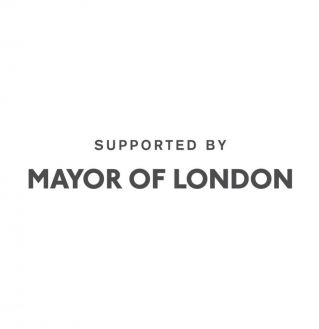New London Architecture
Younger generations and educational environments
Friday 20 November 2020

Education is in many ways the bedrock of sustainable, civilised and egalitarian societies, and this is why we’re delighted to be supporting NLA’s Learning Prize. After all, learning is key to our shared sustainable future, so rewarding excellence and innovation in the design of educational environments that support and nurture younger generations makes a lot of sense to VitrA. And of course, the importance of our educational environments has been even more under the spotlight than usual in 2020, as we’ve witnessed the additional challenges faced by young people today arising from this year’s exceptional circumstances.
We’re delighted to see that the shortlist for this year’s Learning Prize includes projects addressing environments from primary to further education. It’s exciting to see pioneering learning spaces for the future emerging in bold and exciting directions in London, and it’s great to see projects that reinvigorate urban contexts or reimagine and revitalise existing fabric. We’re also enthused by the integration of green spaces dedicated to wellbeing, and we’re intrigued by clever uses of off-site construction.
The New London Awards are celebrating their first decade, and in some ways it’s heartening for all of us to look back over the past 10 years to see how much the sustainability agenda has accelerated in that time, spurred on by the UN’s global Sustainable Development Goals.
But it’s also salutary to realise, looking back at a time when hygiene is more important than ever, that since 2010 around 700 council-run public toilets around the UK have been closed down, pushing hygiene a little further down the civic agenda.
The drive to create sustainable, civilised and egalitarian societies with constrained resources is an ongoing challenge for business and governance alike across the world. Research has always been fundamental to the VitrA ethos, a recent groundbreaking project for us has been researching and developing a child-focused range of toilets, basins and taps designed specifically for the needs of children at key developmental stages as they transition into nurseries and schools.
“There is very little existing data around the subject [of child-focused bathroom design], and led us to conduct our own anthropometric and qualitative research studies. It also led us to conclude that more design thought can and should be given to the specific needs of younger people in our built environments – not least in relation to hygiene and the pandemic.”
Recent
News
NLA welcomes its Sounding Board for the first meeting of 2026
Senior industry leaders meet at The London Centre for the first 2026 session of the NLA Sounding Board, shaping the dire...
News
Housing at a Crossroads: Expert Panel Responds to Policy Upheaval
Miranda MacLaren, Chair of NLA’s Housing Expert Panel, reflects on policy upheaval, market failure and practical solutio...
News
How things have changed: smoothing out the wrinkles in Gateway 2
From 65 weeks to 63 days: Stevan Tennant on Gateway 2 delays, the impact on housing delivery, and how BSR reforms are he...
Stay in touch
Upgrade your plan
Choose the right membership for your business
Billing type:
Small Business Membership
£90.00
/month
£995.00
/year

For businesses with 1-20 employees.
Medium Business Membership
£330.00
/month
£3,850.00
/year

For businesses with 21-100 employees.
View options for
Personal membership














